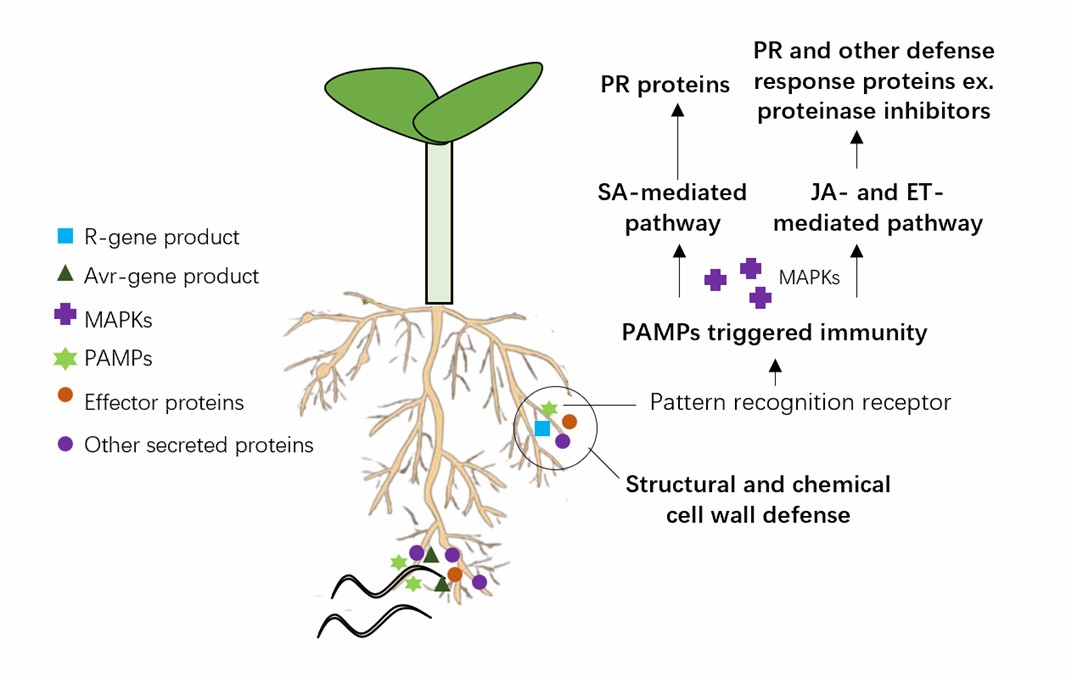We use cookies to understand how you use our site and to improve the overall user experience. This includes personalizing content and advertising. Read our Privacy Policy
As trace signal molecules in plants, endogenous plant hormones play an essential role in regulating plant growth and development. Under normal conditions, a certain balance is maintained between the hormones, which together regulate the growth, development, and metabolism of the plant. However, when the host plant is infested with nematodes, hormone homeostasis is affected due to changes in endogenous hormones caused by the plant activating its defense system; in addition, nematodes alter the production of plant hormones through their secretions or effector proteins when feeding on the plant root system for cellular nutrients.
Lifeasible is committed to helping our customers achieve effective and successful research. We provide convenient and guaranteed mechanism analysis of plant hormones in response to nematode infection. In addition, we deliver reliable results and reports on time to our customers worldwide.
 Fig.1 Scheme of the pathways induced during the plant response to nematode infection.
Fig.1 Scheme of the pathways induced during the plant response to nematode infection.
Lifeasible has extensive experience and expertise in plant science. We are committed to providing you with timely and high-quality deliverables. At the same time, we guarantee the cost-effectiveness, completeness, and simplicity of the report. If you are interested in our services or have any questions, please feel free to contact us or make an online inquiry.
Get Latest Lifeasible News and Updates Directly to Your Inbox
Mechanisms Regulating Plant Chloroplast Biogenesis
April 15, 2025
We use cookies to understand how you use our site and to improve the overall user experience. This includes personalizing content and advertising. Read our Privacy Policy